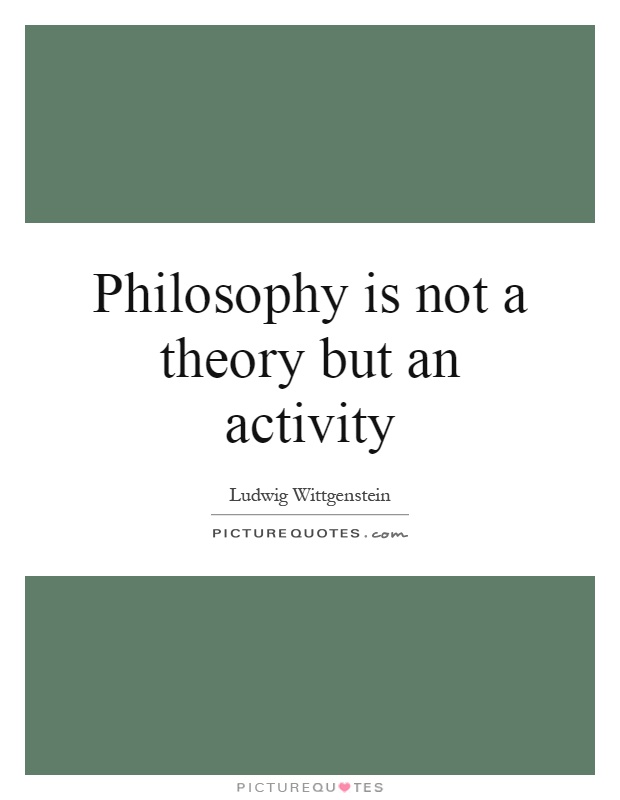Philosophy is not a theory but an activity

Philosophy is not a theory but an activity
Ludwig Wittgenstein, one of the most influential philosophers of the 20th century, famously stated that “Philosophy is not a theory but an activity.” This statement encapsulates his unique approach to philosophy, which focused on the practical aspects of language and the way it is used in everyday life. Wittgenstein believed that philosophy should not be concerned with creating grand theories or systems, but rather with analyzing the language we use to communicate and understand the world around us.Wittgenstein’s philosophy can be seen as a reaction against the traditional approach to philosophy, which often involved constructing elaborate theories about the nature of reality, knowledge, and ethics. Instead of engaging in abstract speculation, Wittgenstein believed that philosophy should be a form of linguistic therapy, aimed at clarifying the meanings of words and concepts that are often misunderstood or misused.
For Wittgenstein, the key to understanding philosophy lay in examining the way language is actually used in everyday contexts. He argued that many philosophical problems arise from misunderstandings or confusions about the meanings of words, and that by carefully analyzing the language we use, we can resolve these problems and gain a clearer understanding of the world.
One of Wittgenstein’s most famous works, the Tractatus Logico-Philosophicus, explores the relationship between language, thought, and reality. In this work, Wittgenstein argues that language is not a mirror of reality, but rather a tool that we use to make sense of the world. He suggests that the meaning of a word is determined by its use in a particular context, and that philosophical problems arise when we try to assign fixed, universal meanings to words that are actually flexible and context-dependent.












 Friendship Quotes
Friendship Quotes Love Quotes
Love Quotes Life Quotes
Life Quotes Funny Quotes
Funny Quotes Motivational Quotes
Motivational Quotes Inspirational Quotes
Inspirational Quotes